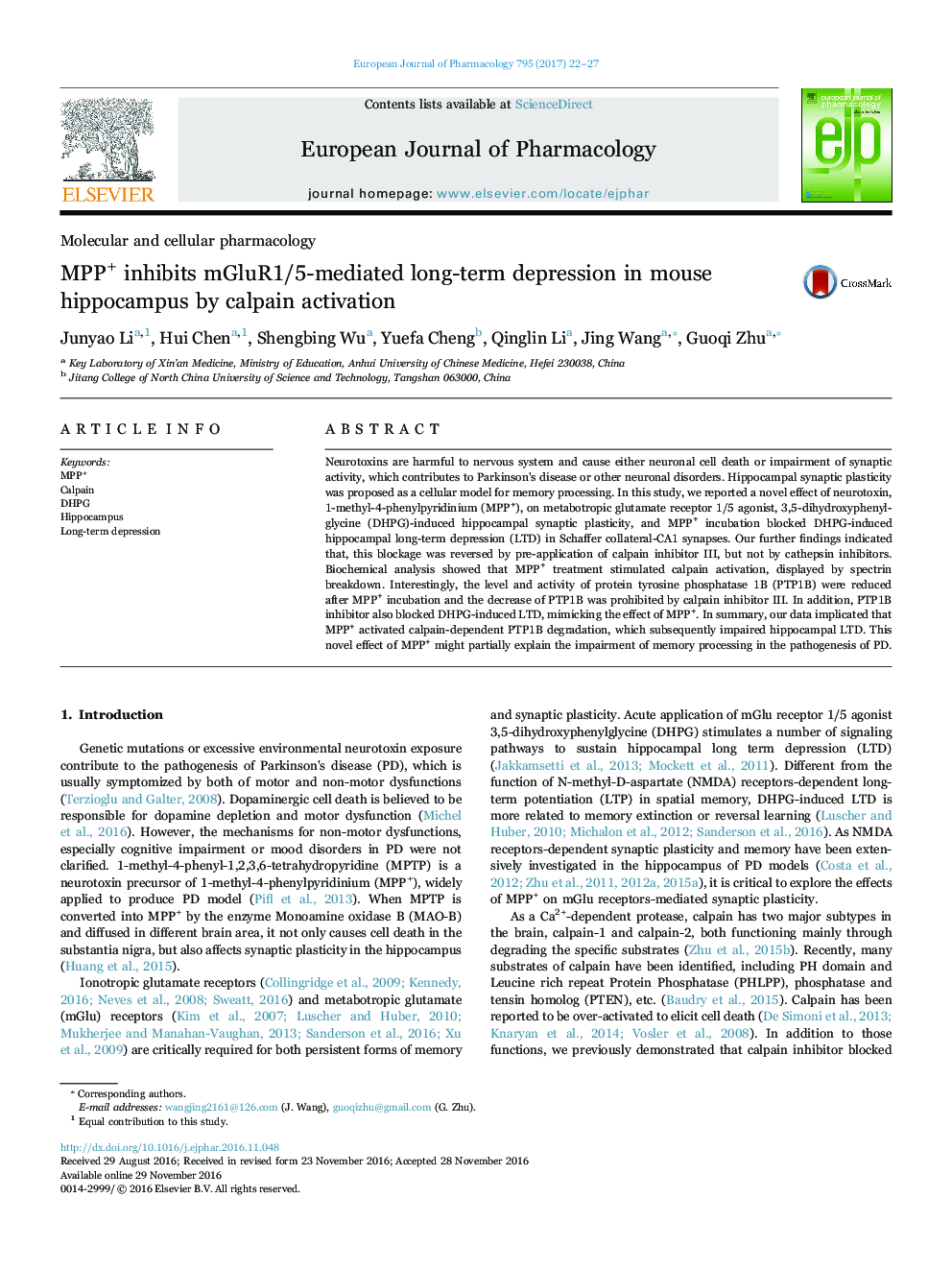| Article ID | Journal | Published Year | Pages | File Type |
|---|---|---|---|---|
| 5554737 | European Journal of Pharmacology | 2017 | 6 Pages |
Neurotoxins are harmful to nervous system and cause either neuronal cell death or impairment of synaptic activity, which contributes to Parkinson's disease or other neuronal disorders. Hippocampal synaptic plasticity was proposed as a cellular model for memory processing. In this study, we reported a novel effect of neurotoxin, 1-methyl-4-phenylpyridinium (MPP+), on metabotropic glutamate receptor 1/5 agonist, 3,5-dihydroxyphenylglycine (DHPG)-induced hippocampal synaptic plasticity, and MPP+ incubation blocked DHPG-induced hippocampal long-term depression (LTD) in Schaffer collateral-CA1 synapses. Our further findings indicated that, this blockage was reversed by pre-application of calpain inhibitor III, but not by cathepsin inhibitors. Biochemical analysis showed that MPP+ treatment stimulated calpain activation, displayed by spectrin breakdown. Interestingly, the level and activity of protein tyrosine phosphatase 1B (PTP1B) were reduced after MPP+ incubation and the decrease of PTP1B was prohibited by calpain inhibitor III. In addition, PTP1B inhibitor also blocked DHPG-induced LTD, mimicking the effect of MPP+. In summary, our data implicated that MPP+ activated calpain-dependent PTP1B degradation, which subsequently impaired hippocampal LTD. This novel effect of MPP+ might partially explain the impairment of memory processing in the pathogenesis of PD.
